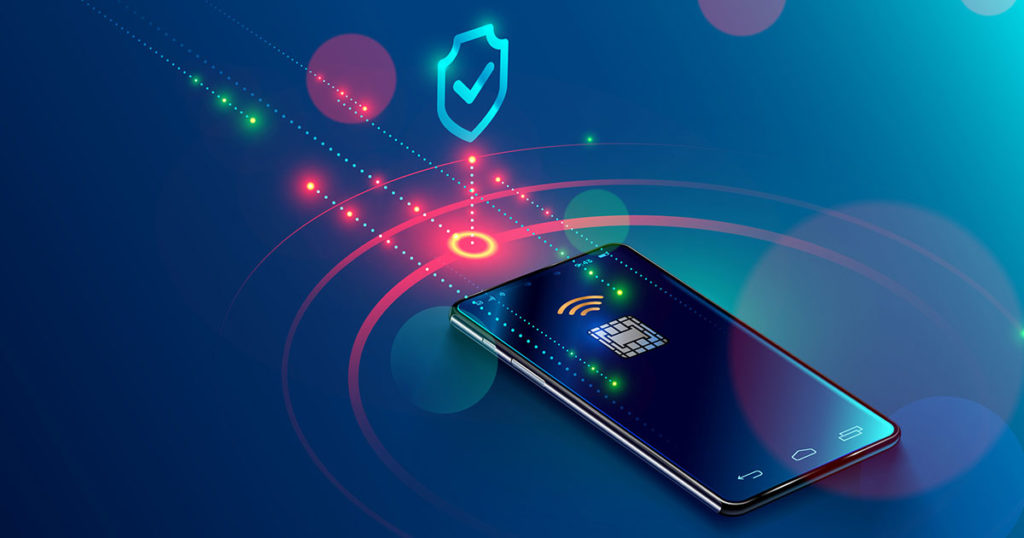
The technological advancements and handiness of mobile devices have made them quite popular as compared to laptops and desktops. Users now use mobile devices for almost all kinds of activities from checking emails to watching the news, buying items online, instant messaging, and more. There are mobile apps available for everything you want from gaming to making monetary transactions. These apps let businesses collect important information from the users like usage stats, contact numbers, location, and more, which can assist them to make the right decisions to enhance their services. If this data goes to the wrong people, then it can be pretty harmful. So, mobile app security is now an important aspect to consider for app developers India.
Mobile apps are one of the main targets for malicious activities. So, businesses should ensure to protect their apps while they enjoy the full benefits that the apps offer. Below is a list of best practices to create secure mobile apps:
Protect Data-in-Transit
You need to protect the sensitive information transmitted from a client to the server against any kind of data theft and privacy leaks. To do so, the software development company India can either use a VPN or SSL tunnel to ensure that the data is safeguarded with solid security measures.
Source Code Encryption
When it comes to native mobile apps, code is generally on the client’s side. This makes it easy for the mobile malware o track vulnerabilities and bugs in the code and design. Using reverse-engineering methods, attackers repack famous apps into scoundrel apps. Problems like this can take a business reputation downward. So, hire mobile app developers India should ensure that they create robust apps to avoid reverse engineering outbreaks and any tampering. The best way to defend your app from such attacks is by encrypting the source codes.
Use the Newest Cryptography Methods
Even the famous cryptography algorithms such as SHA1 and MD5 sometimes are inadequate to meet the rising security needs. Hence, it’s important to stay updated with the newest security algorithms and use the latest encryption technics such as SHA 256, AES with 256-bit encryption, or 512-bit encryption. Besides, you can also perform threat modeling and manual penetration testing on the apps before making them live.
Penetration Tests
Testing your mobile apps against rando, security scenarios has been an excellent practice. Penetration testing is an outstanding method as it helps avoid security vulnerabilities and risks against mobile apps. It is important to find loopholes in your system as they can soon grow into potential threats offering access to mobile features and data.
Secure Backend
Most mobile apps work on the client-server mechanism So, app developers India should ensure to have security measures to protect against mischievous attacks at the backend server. Most developers believe that only the application that is programmed to use the APIs can use it. But, you must verify all the APIS in line with the platform you intend to code for. This is because the API transport mechanism and authentication can deviate from platform to platform.
Multi-Factor Authentication
This can help you add a layer of security whenever users log into an application. Multi-factor authentication offers a cover for weak passwords also that can be guessed easily by hackers. It offers a secret code, which users need to enter together with the password for logging in. The code is either sent via email, SMS, biometric methods, or Google Authenticator.
Handling Sessions
Sessions on mobiles last longer as compared to desktops. This can increase the load on the server. The use of the token is considered to be a securer option as compared to device identifiers. Developers need to consider session expiration. Allowing remote wiping of information for stolen or lost devices is an excellent safety option.
High-Level Authentication
Without high-level authentication, security breaches can occur. Software development company India should design apps such that they accept strong passwords only. Other than that, it is a good option to make it important to periodically change passwords. For sensitive apps, security can be strengthened by using biometric authentication using retina or fingerprint scans. Encourage users to ensure authentication to avoid any kind of security breaches.
Implement Session Logout
It’s frequently noticed that users forget to sign out of the app or website they are using. In the case of payment or banking apps, it can be very harmful. It is because of this that session logout implement is important. Such apps should end the session after a specific inactivity period for enhanced security. Developers should implement a session logout feature on every consumer-centric and business app.
With the increasing number of data breaches and hacking attempts, users know app security problems and thus prefer applications that are secure as compared to those that aren’t. As a result, app developers India should develop apps that not only meet the users’ needs but keep security aspect also on the top.